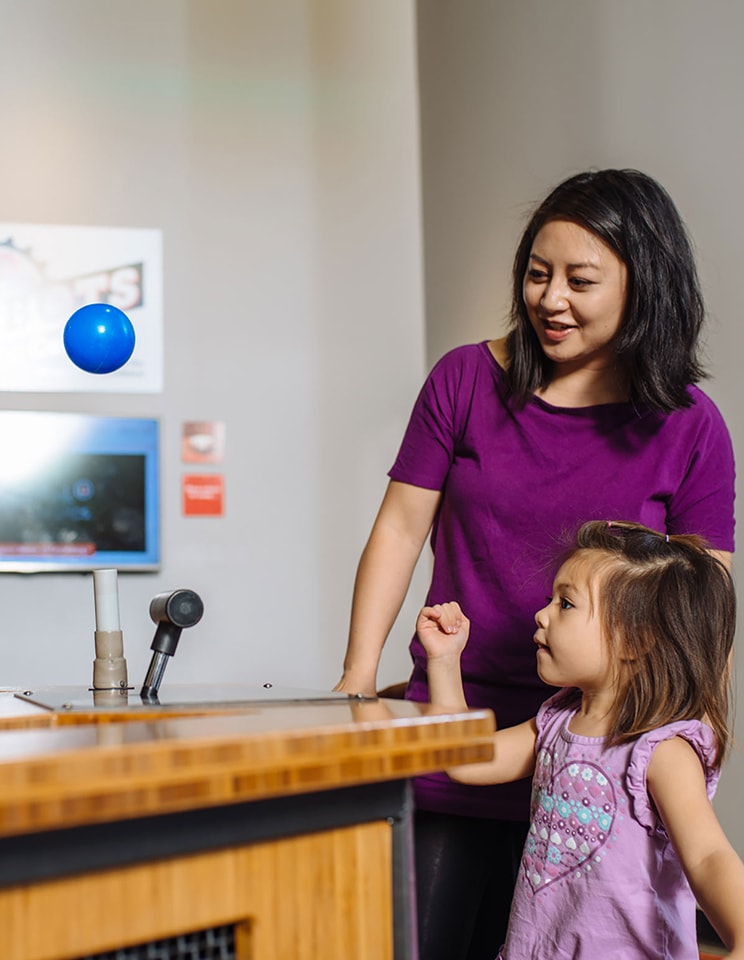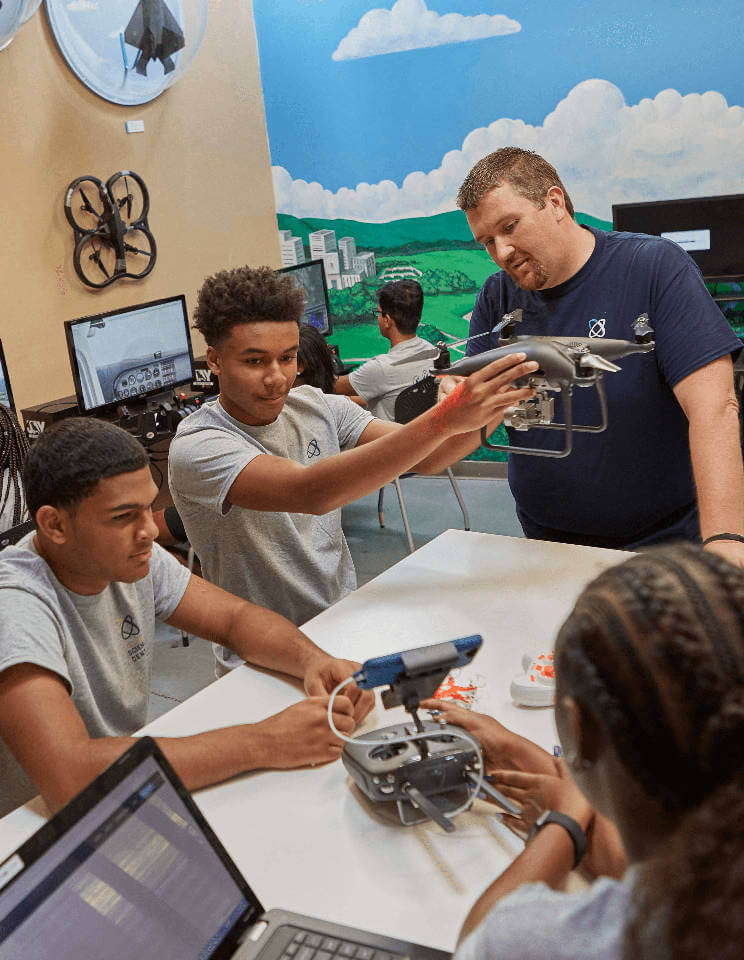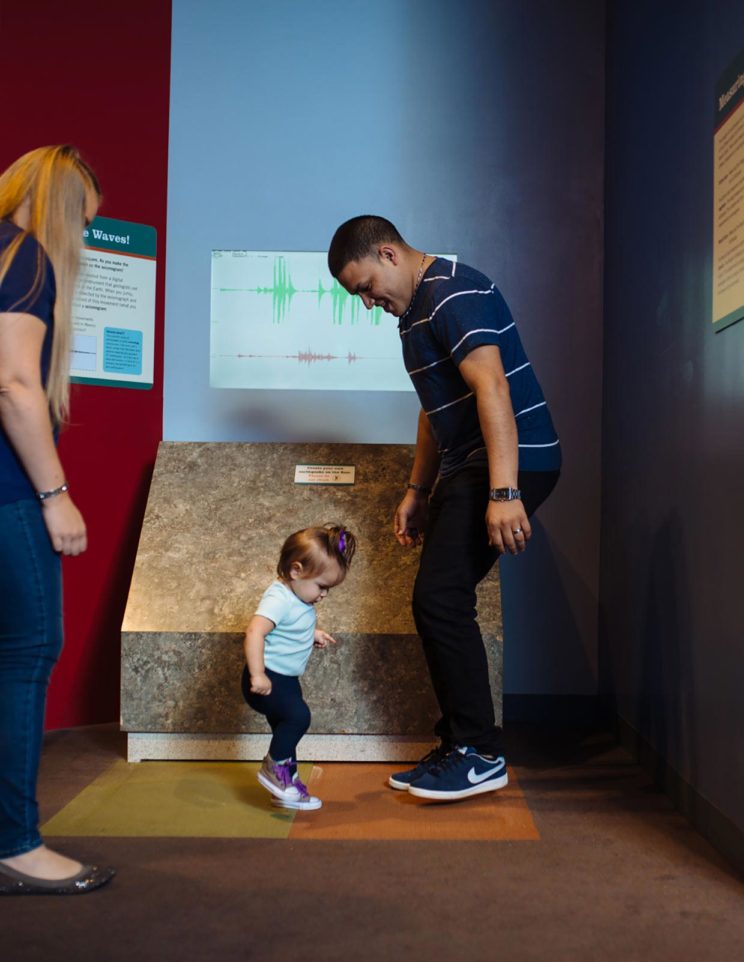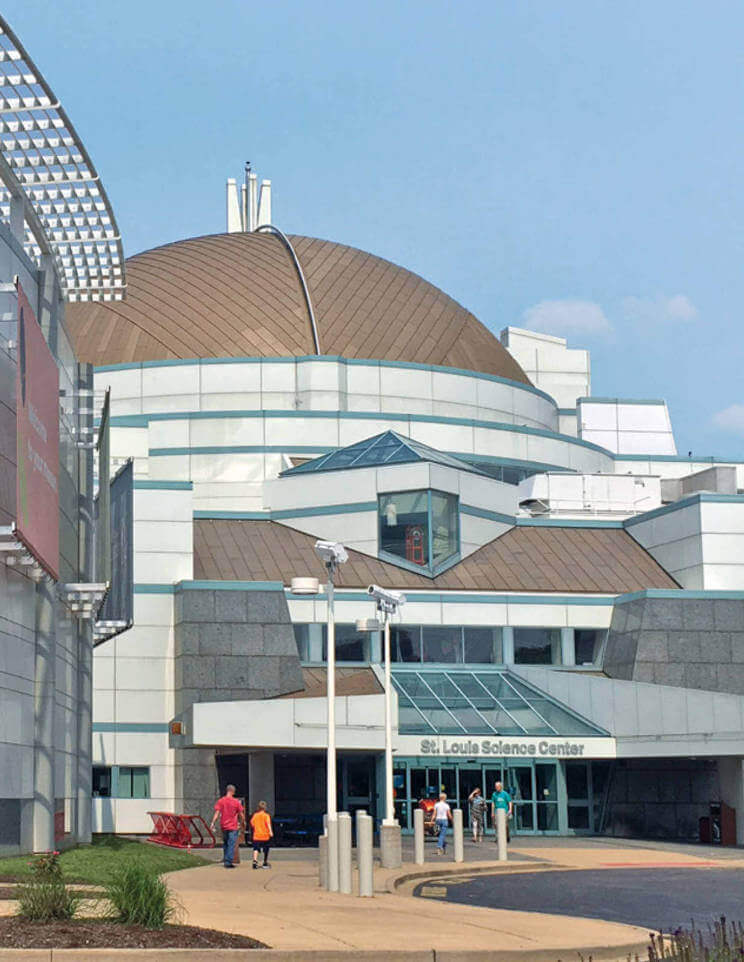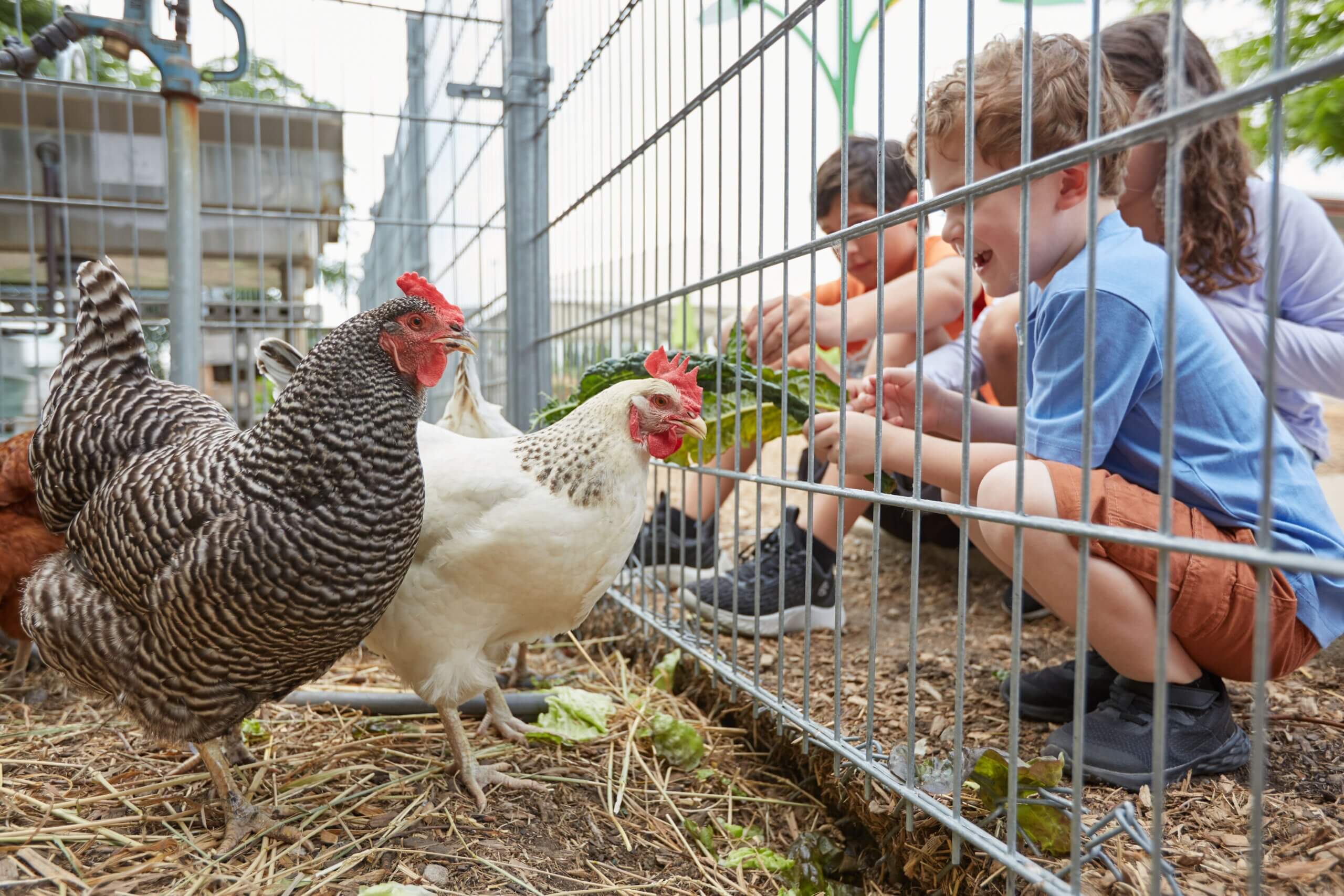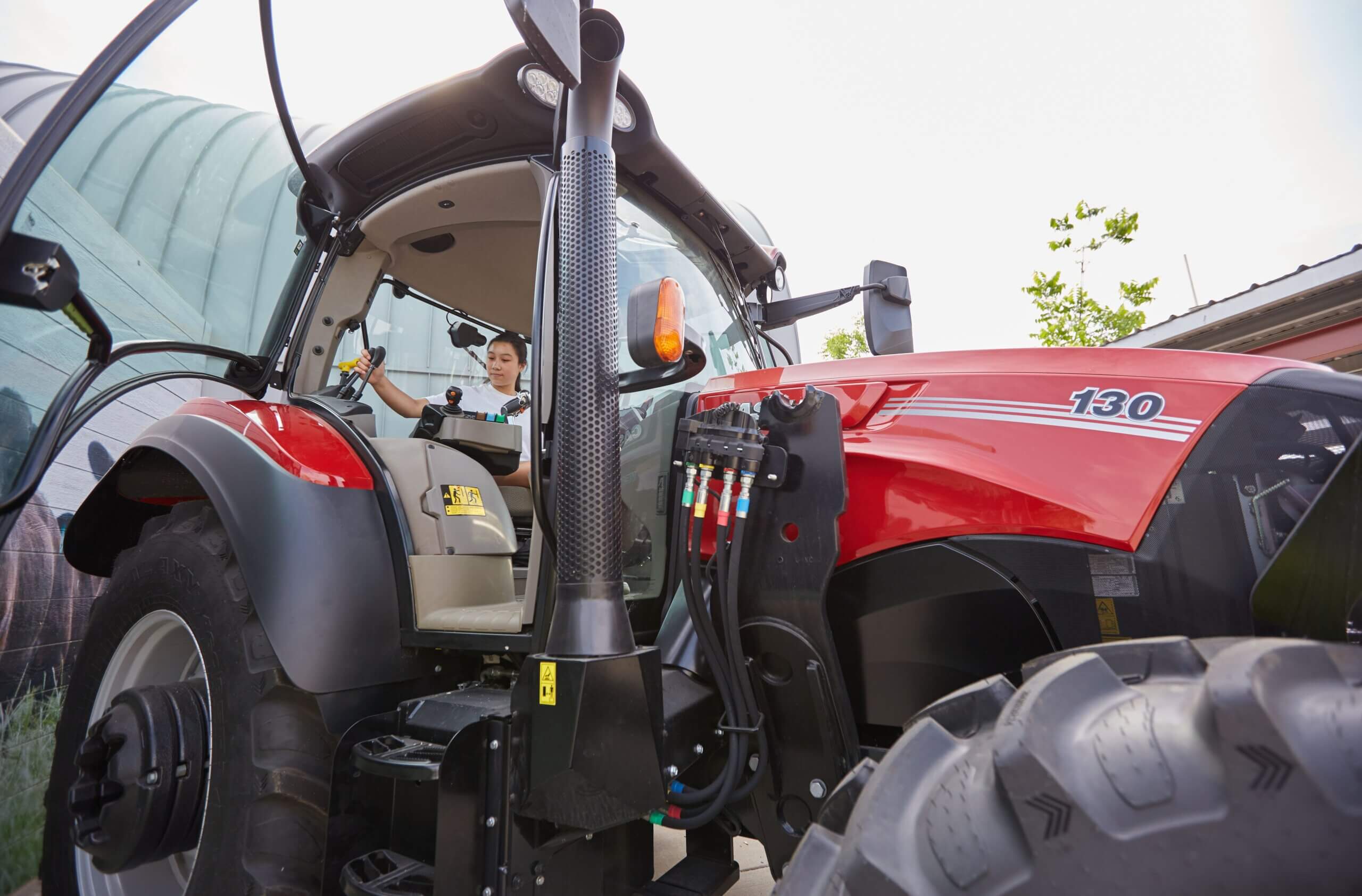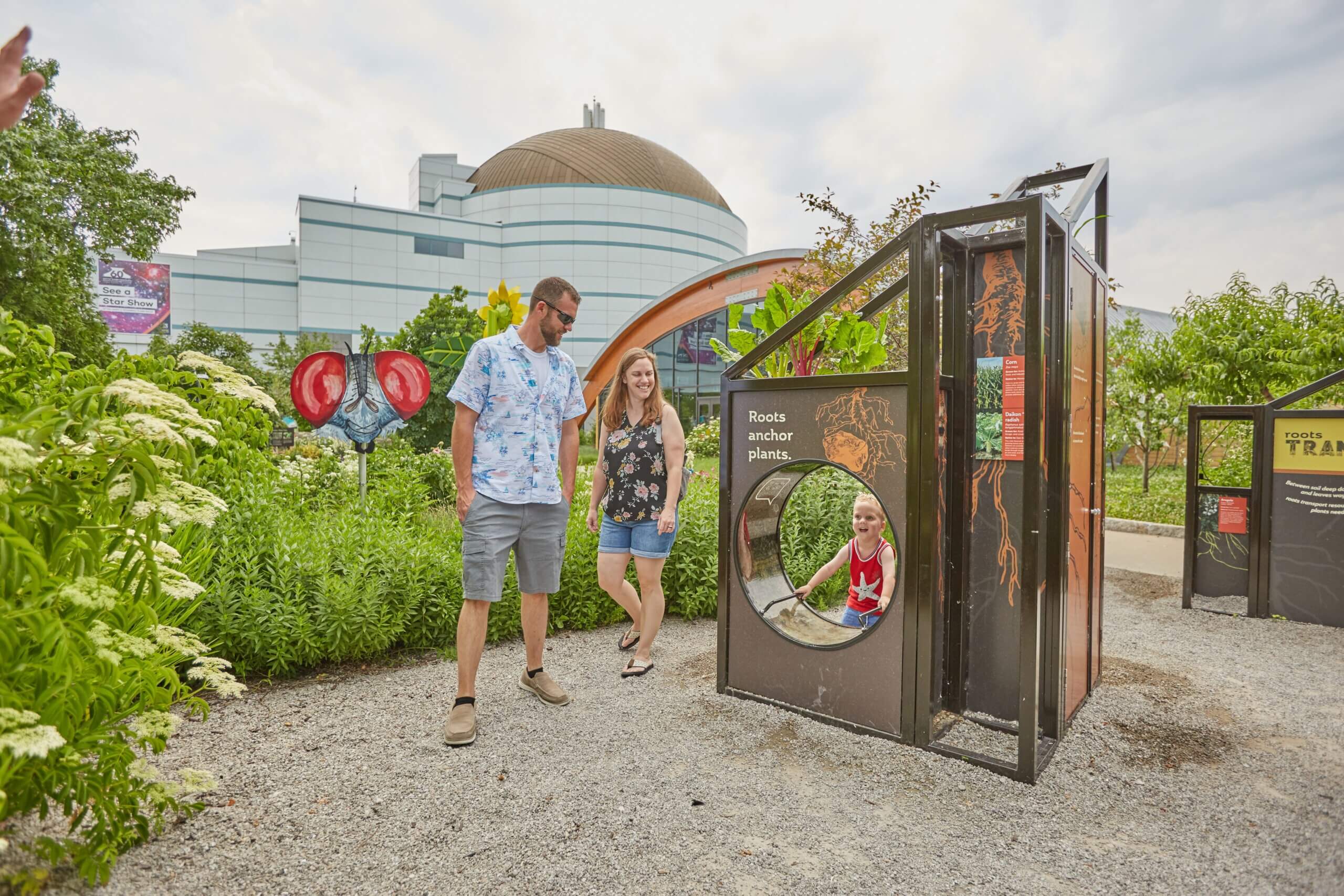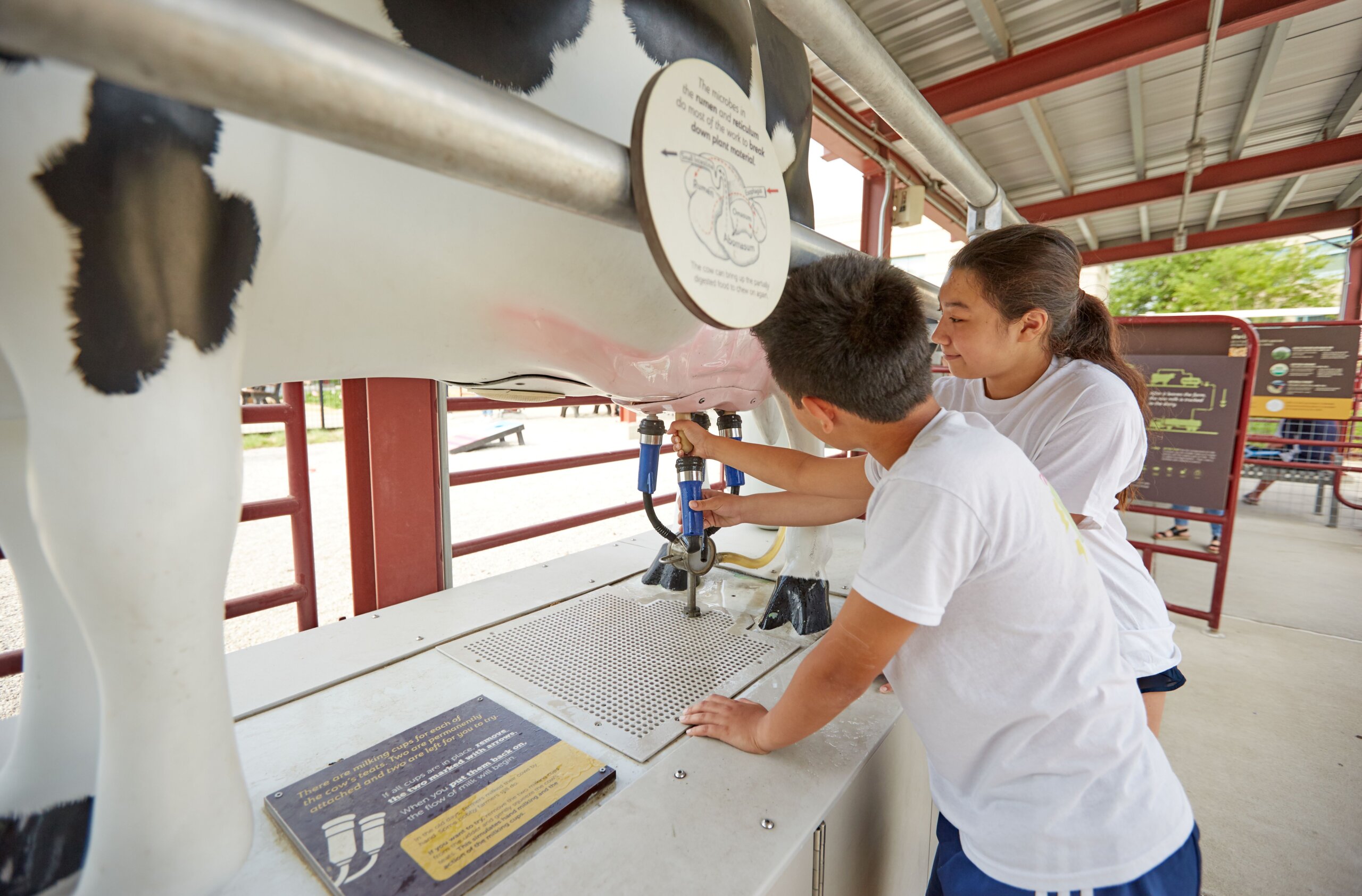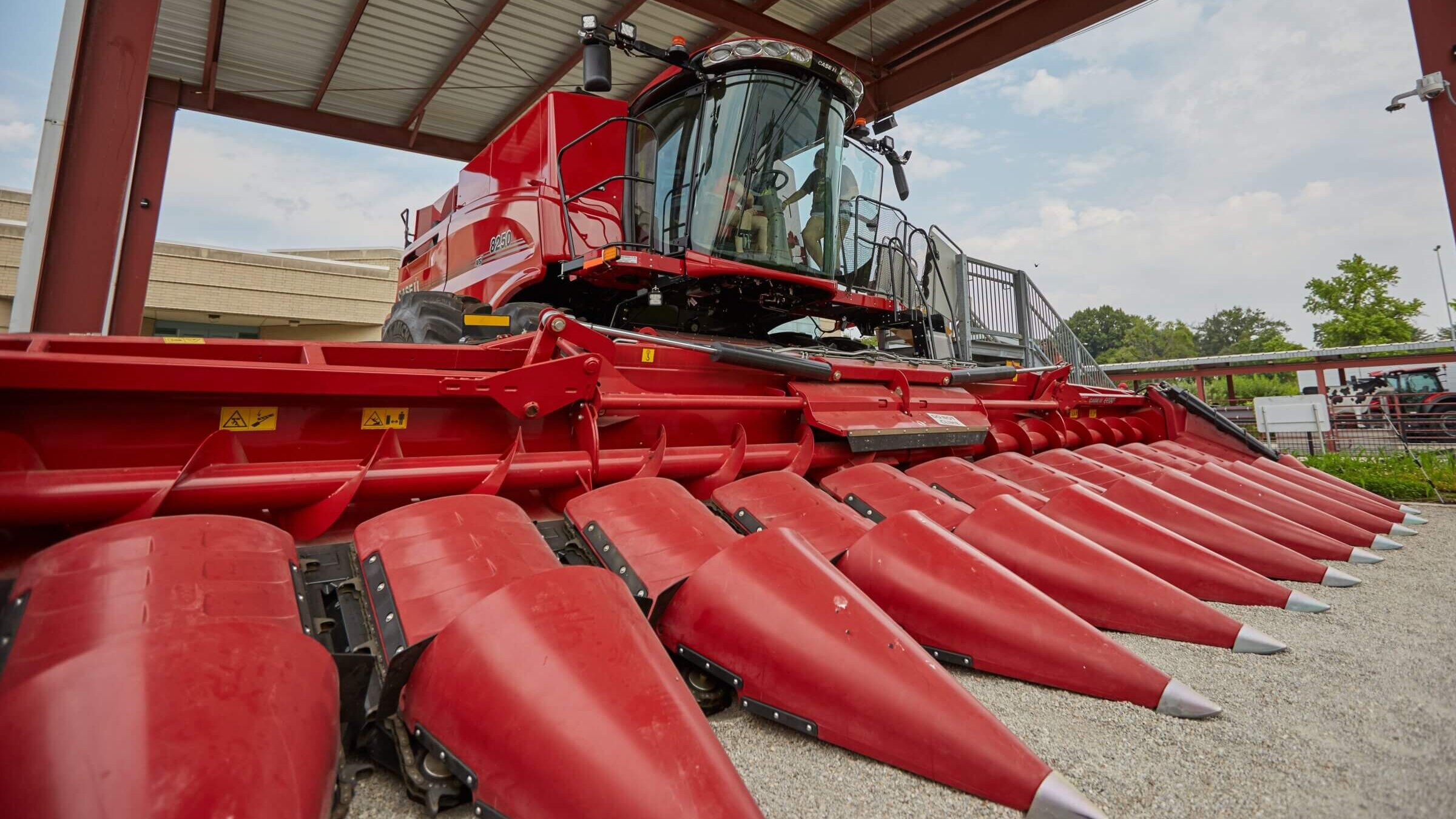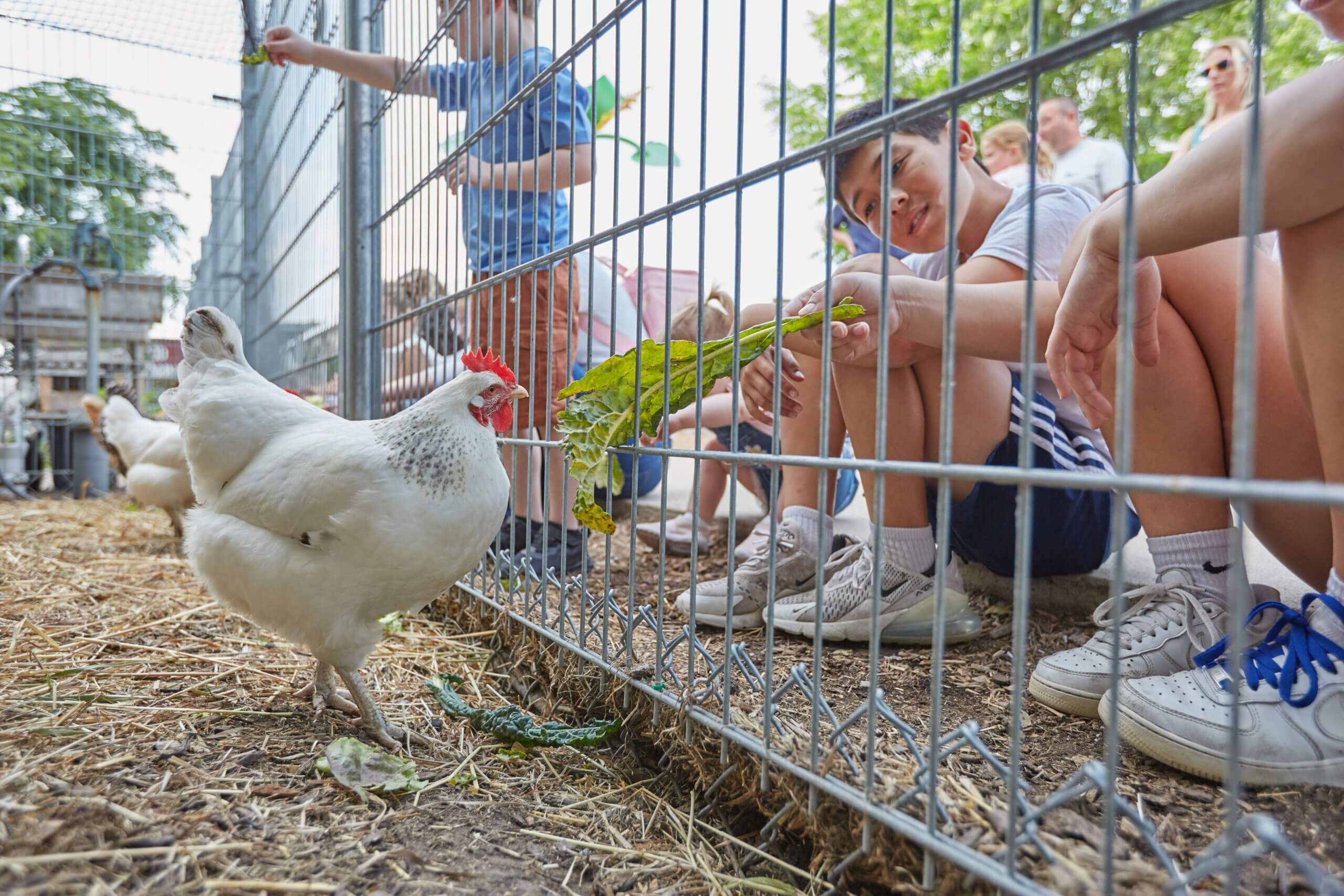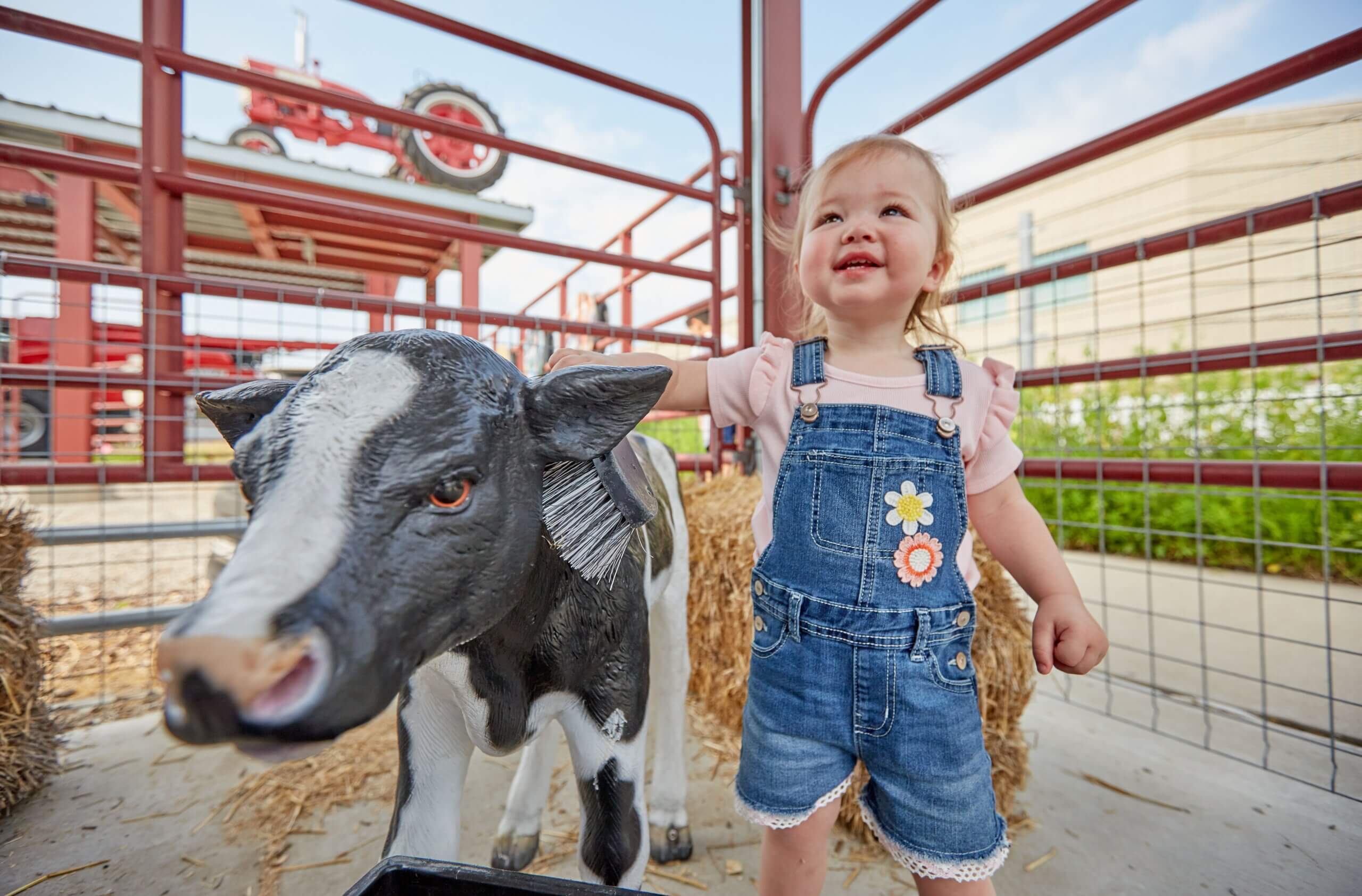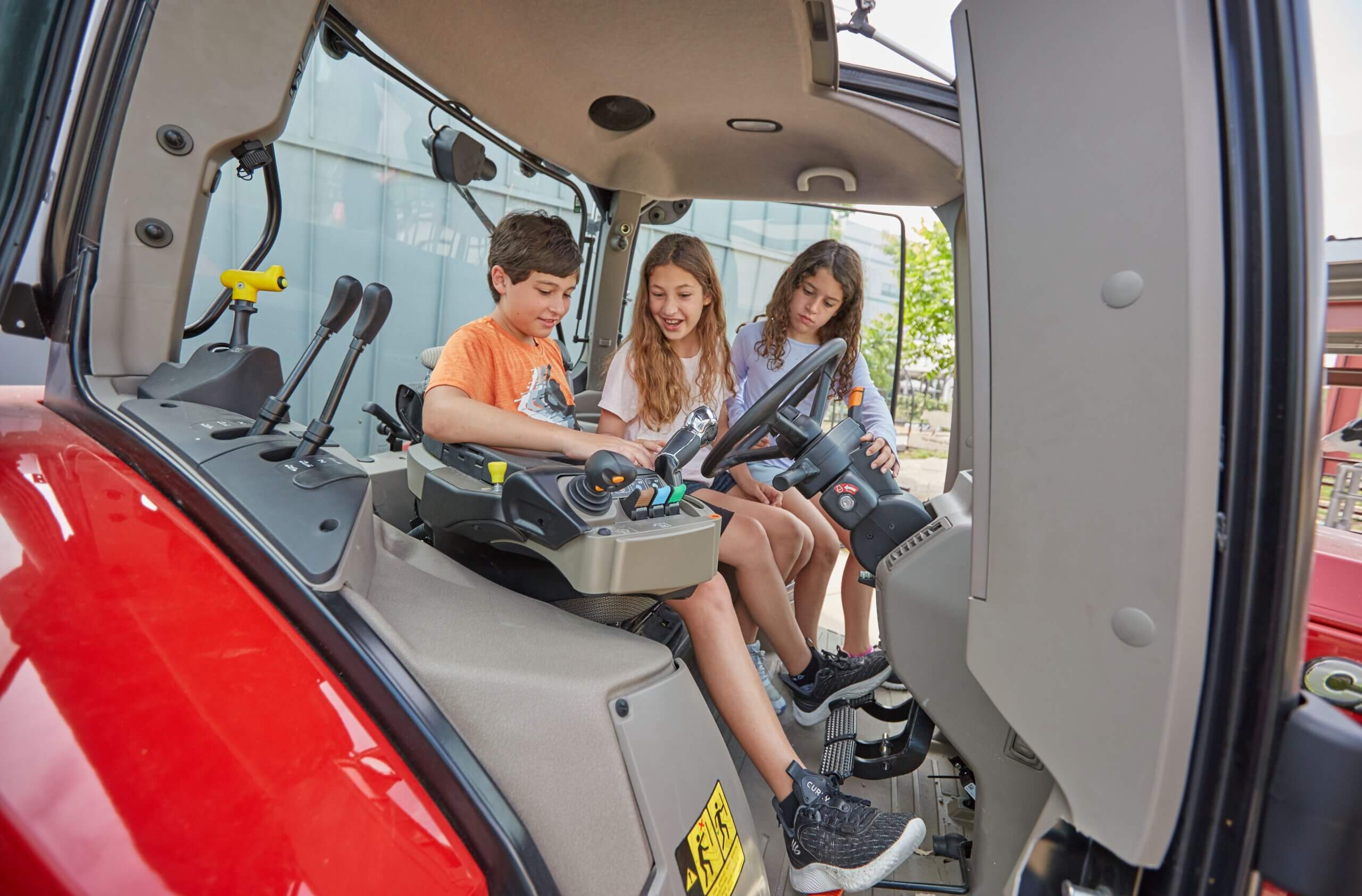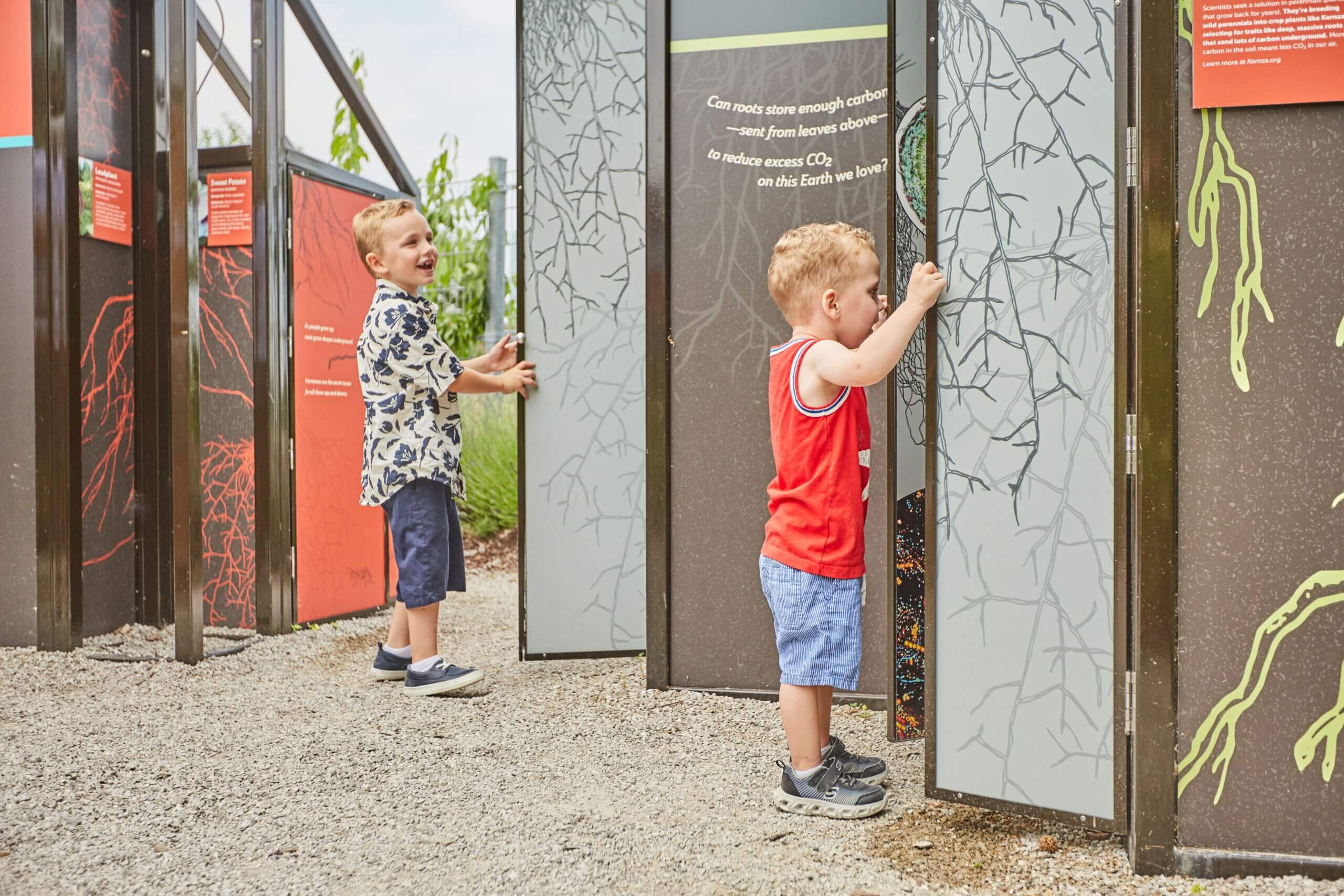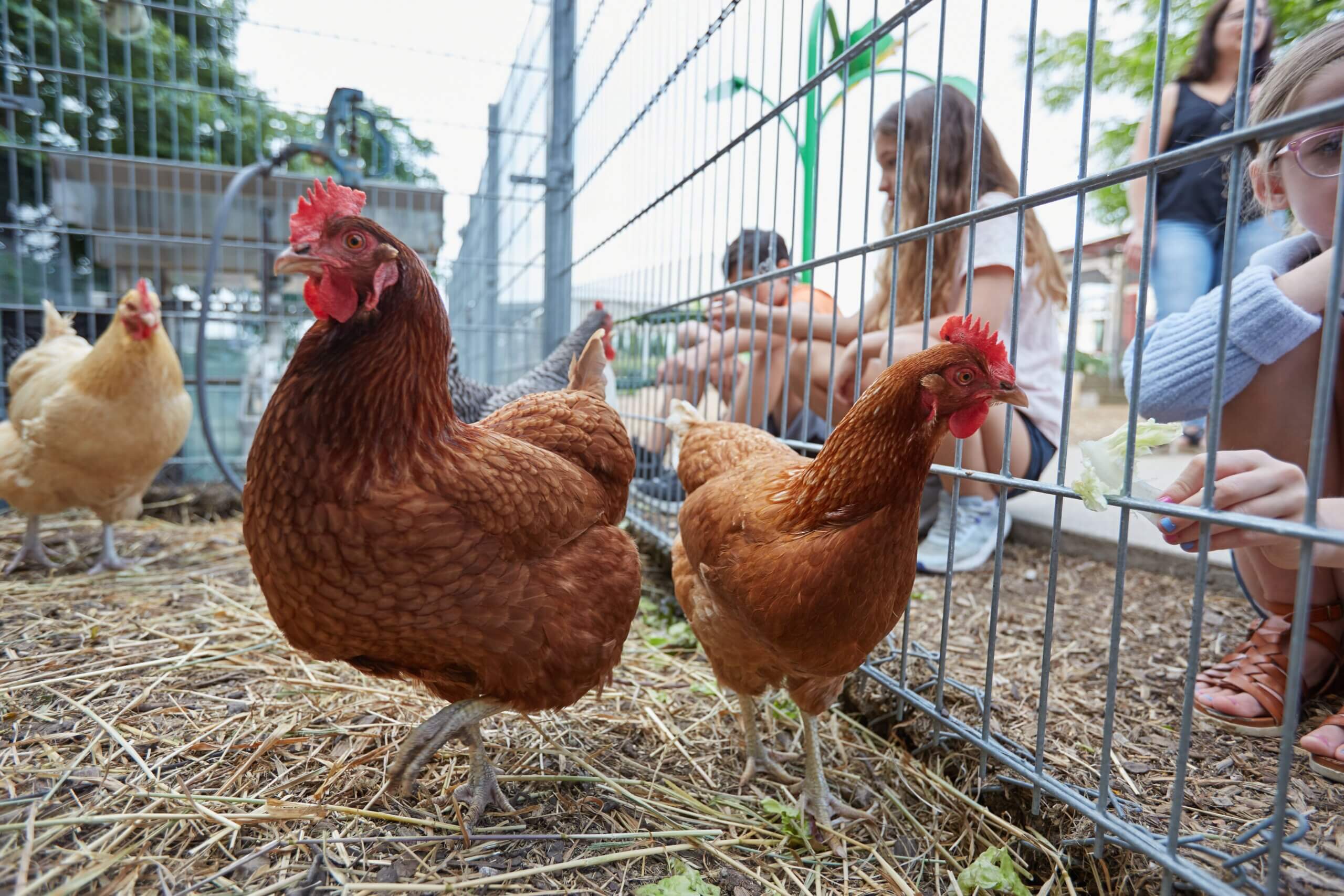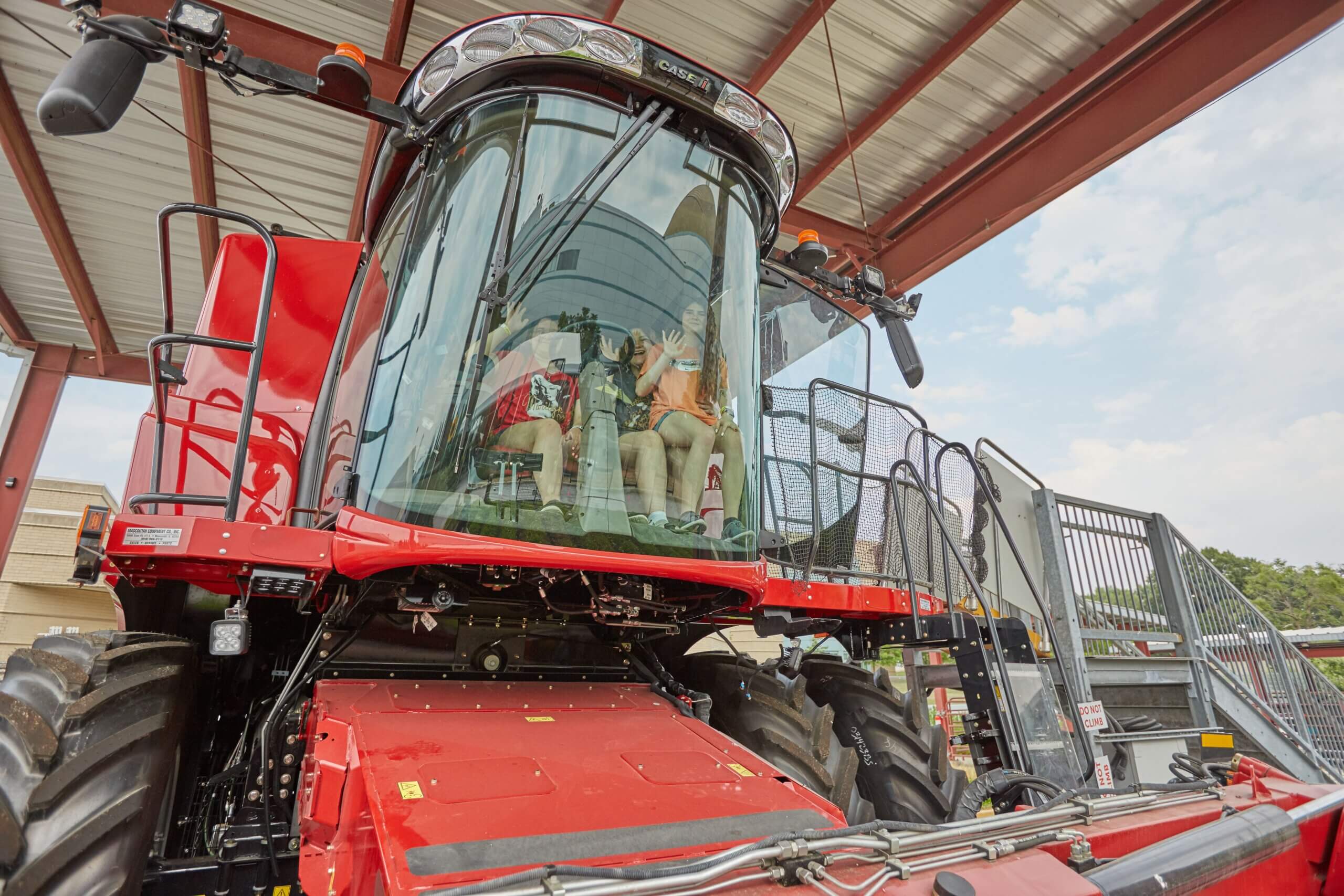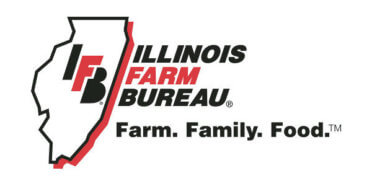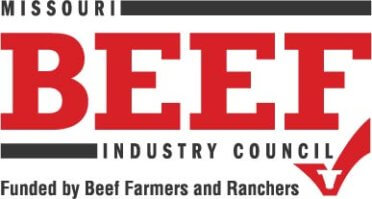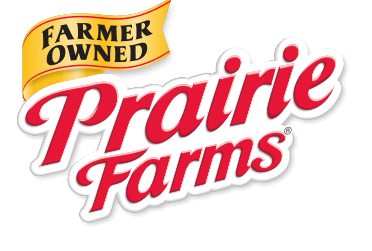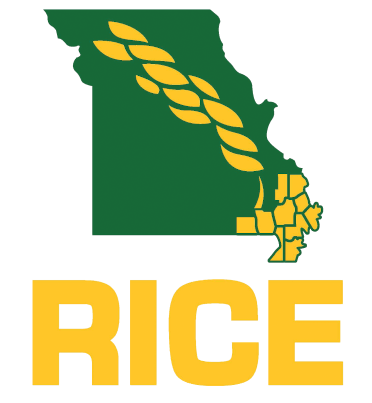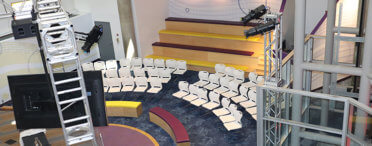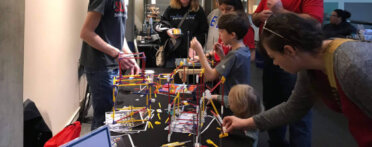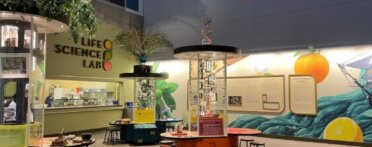GROW
About
Dig in and learn about agriculture.
Explore the science behind one of the most important parts of life: our food. Where does it come from? How does it grow? How far does it travel to get to us? And how can each of us ensure that everyone has delicious, nutritious food to eat? You’ll find the answers to these questions and so much more in GROW – the largest U.S. gallery of its kind focused solely on agriculture.
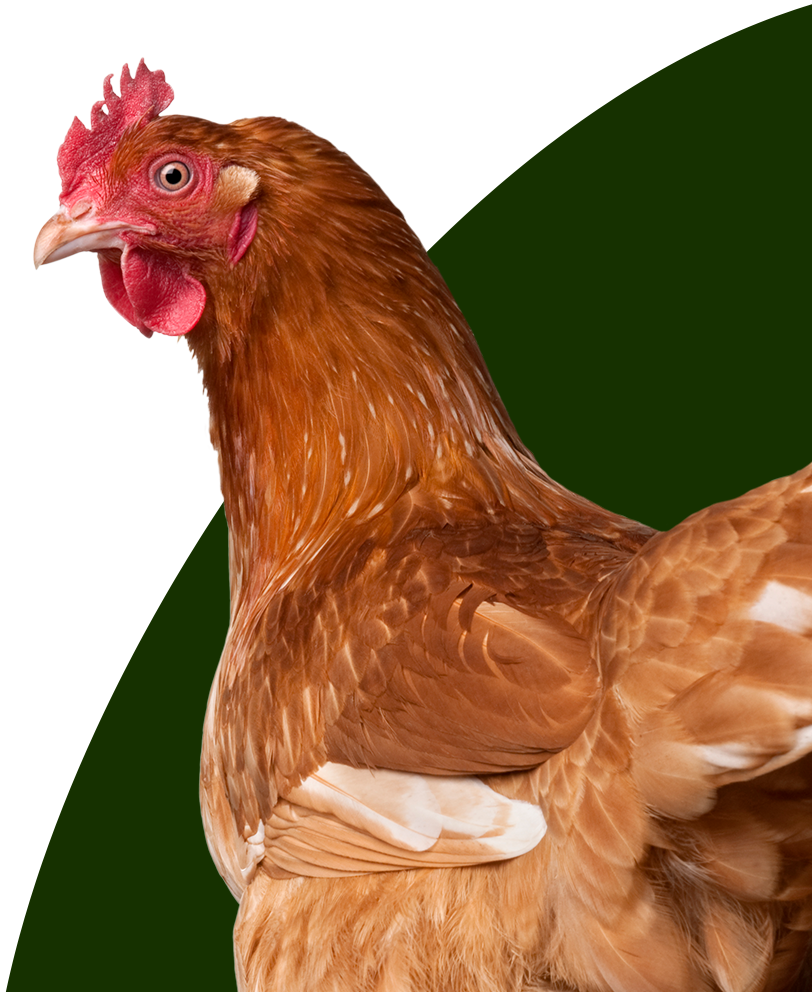
The Grounds
Experience GROW
GROW is a 5,000-square-foot pavilion and an acre of beautiful outdoor space. In the GROW Pavilion and Gallery, not only will you learn about your food’s journey from farm to table, you’ll learn the scientific processes that turn seeds into towering plants. Discover the story of agriculture and the many ways technology is shaping the agricultural landscape.
GROW Pavilion
Trace the steps of your food from the farm to the table – and everywhere in between. This award-winning indoor area features exhibits, educational programs and planned events that explore farming and its vital role in today’s complex local and global economies. Visit our seed display, view a stunning display of soil monoliths from every state in the United States, and check out the amazing glulam beams used to build the Pavilion.
Root Towers
Explore nine different towers to discover the plant parts that are rarely seen. See which roots grow the deepest and find out if roots can grow longer than you are tall. Each tower has its own story to tell as you explore what lies underneath.
Bi-State AG Map
The adventure begins at home. Dig into the agricultural products and processes of Missouri and Illinois and learn where your food comes from.
Water Works
Water plays a vital role in agriculture, as well as our lives. While the kids play in this interactive water area, check out the nearby rain gardens and permeable pavement. Learn how we use this very important resource in farming and in our everyday lives.
Open weather permitting. Closing mid-October for winterization.
Botany Basics at the Giant Sunflower
Explore the inner workings of plants and discover how they harvest the Sun’s energy to grow and support all life on Earth. Check out the native plantings and learn how plants spread and grow.
Animal Corral
Plants aren’t the only source of food you can find on farms. Take a tour through the Animal Corral and simulated milking, understand the digestive processes of livestock, and learn how farmers manage feed conversion. On select days, local farmers visit and bring animals to visit. Past animal visitors have included dairy cows, goats, sheep, rabbits, alpaca, ostrich and baby pigs.
Farm Tech Field
Check out a real combine and learn how farmers use this machine to get their crops out of the field. Combine demonstrations are held nearly every weekend.
Greenhouse
Agricultural growth isn’t always open fields and gigantic tractors. Many urban areas are demonstrating ways to grow specialty food crops like lettuce, kale and tomatoes indoors using aquaponic, hydroponic, and aeroponic systems. Visit our greenhouse to see examples of these systems.
Fermentation Station
Visit the Fermentation Station (open seasonally) to purchase refreshments like beer, wine, kombucha, as well as more substantial offerings like burgers from the on-site burger bar, sausage, and cheese and fruit plates. While you’re visiting, check out the grape vines that encircle the space.
Currently CLOSED.
Chicken Coop
Spend some time watching our chicken flock out in GROW or at our viewing window. Some of these breeds are the same breeds responsible for your morning eggs. Talk with our staff to discover how you can raise your own birds or learn how egg farmers do it differently.
Homegrown
It’s time to roll up your sleeves and get to work. Visit the homeGROWn area for ideas about how to start your own edible plot. See specialty food crops like beans, garlic, peppers, and squash up close and visit with our staff and volunteers for tips on growing. Visit our compost area and learn how to turn food scraps into fertilizer.
The GROW Greenhouse
The GROW aquaponic greenhouse is now open for self-guided exploration during the Science Center’s normal operating hours! Additional improvements are on the way. Thanks to a grant from the USDA’s Sustainable Agriculture Research and Education (SARE) program, we better explain the hydroponic systems on display in the greenhouse and highlight careers in the indoor growing industry, ranging from aquaponic farming to lighting design.
Read the series on the GROW Greenhouse!
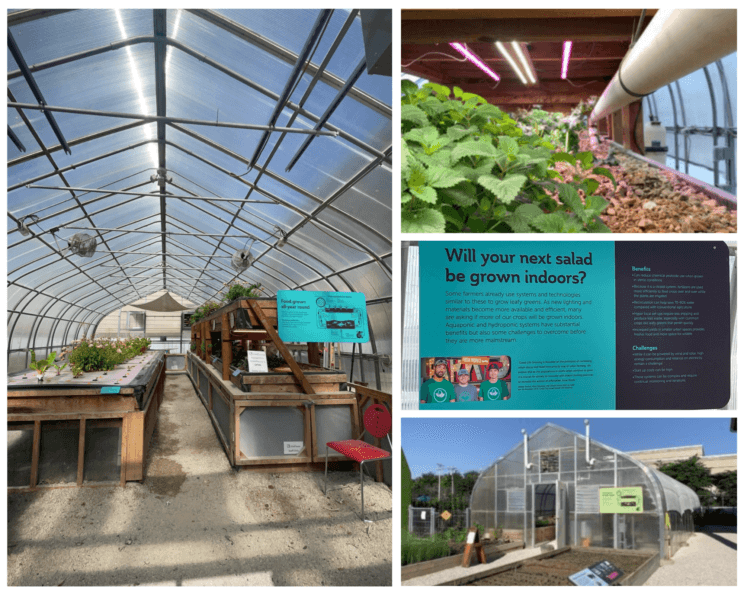
Hydroponic Gardening – Light for Life
When we talk with our younger guests about hydroponics, we like to start off with a seemingly simple question: what does a plant need to grow? It seems like such an easy question to answer, but the more you start thinking about the answers, the more complex the question becomes. Somebody once asked the question “does a plant truly need dirt to grow?” And from that line of questioning, hydroponic gardening was born. Rethinking the status quo and diving deep into the limits of our answers helps create innovation. In that spirit, today we’ll be discussing one of the many overlooked factors of plant growth: light.
Water Works
This Water Works exhibit in GROW has recently been updated! Water Works invites our guests to “engineer” or move water to our plant crops and farm animals. Using manipulatives like levers and pumps, our guests will move water through farm systems. Guests then explore ways to “engineer” natural systems to clean up waste products (animal manure and extra fertilizers) left in the water. Guests will plant trees and channel water through plants, bushes and other trees to clean it. Along the way our young guests will get wet and enjoy lots of play and hands-on learning.
The GROW Lab
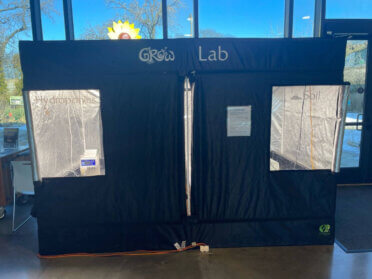 Over the last few months, the GROW Pavilion has hosted a bright and eye-catching new exhibit: a state-of-the-art GROW Lab! We, the GROW staff, conduct experiments and collect data using this controlled environment. We use one side for growing plants in traditional soil and one side for a hydroponic grow. After two trial runs, we are ready to start sharing what is happening through regular post updates about the plants’ growth and any issues that we face with our grow.
Over the last few months, the GROW Pavilion has hosted a bright and eye-catching new exhibit: a state-of-the-art GROW Lab! We, the GROW staff, conduct experiments and collect data using this controlled environment. We use one side for growing plants in traditional soil and one side for a hydroponic grow. After two trial runs, we are ready to start sharing what is happening through regular post updates about the plants’ growth and any issues that we face with our grow.
One of the exciting aspects of science we re-discovered is just how surprising it can be. Sometimes you do not get the results you expect. We are curious to see how these next plants will do using what we have already learned along with advice from experts in the indoor growing industry. They will help us troubleshoot the issues that will inevitably arise. Over the next few months, this blog will include advice from these growers as well as a record of our experiences.
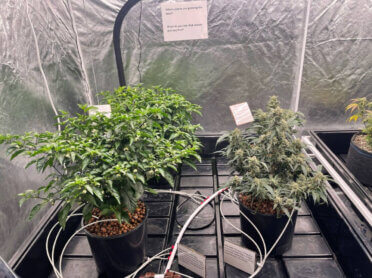
Our past grows included peppers, tomatoes, and industrial hemp. In the third grow, we are including a different variety of industrial hemp as well as a green chili pepper that is currently being grown onboard the International Space Station. The seeds are already germinating!
In our field of informal education, we strive to answer the question, “So What?”—why does that fact or topic matter? A grow tent might not be a practical way for most people to grow food but what if by interacting with a grow tent we rethink how we are growing food? Or, maybe some of our guests get interested in growing their own food. As we go through this, we hope you ask yourself what role you want to play in the stewardship of our food. And we hope we help you answer the “so what” as it pertains to your life.
The Latest
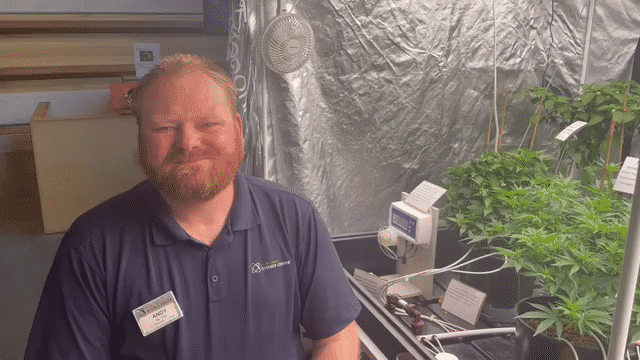 It’s GROW Time!
It’s GROW Time!
We check back in on our plants 11 days after the light cycle was reduced to 12 hours from 18.
Follow our series about our GROW Lab
This series highlights our experiences with indoor growing along with insights from experts in the field.

Get ready to go on an adventure with soil science, make quality observations, and expose the hidden life of soil.
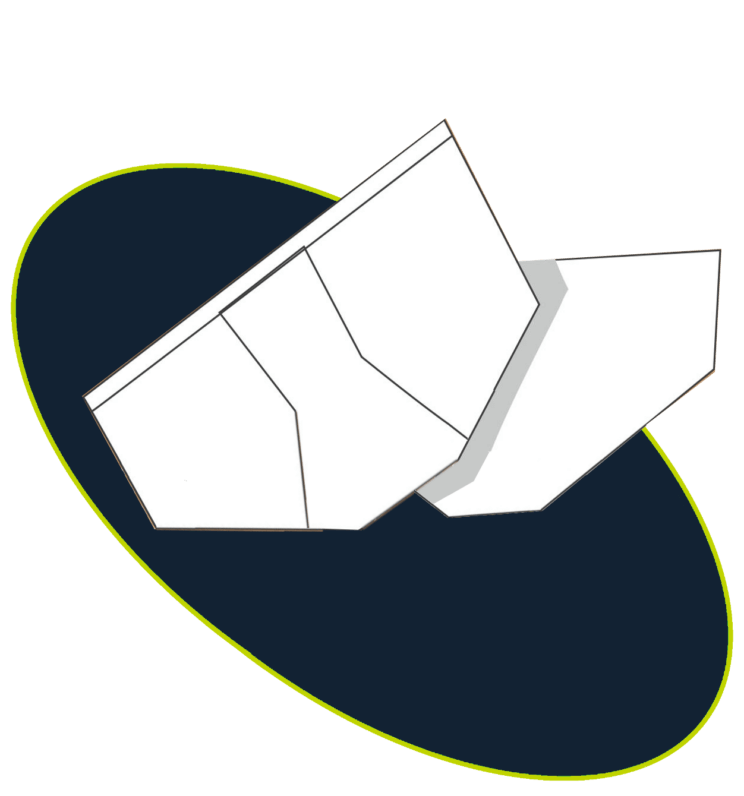

Visit
Grow Programs for Groups
The Science Center offers a wide variety of agriculture-themed educational programs and tours tailored to specific groups and audiences.
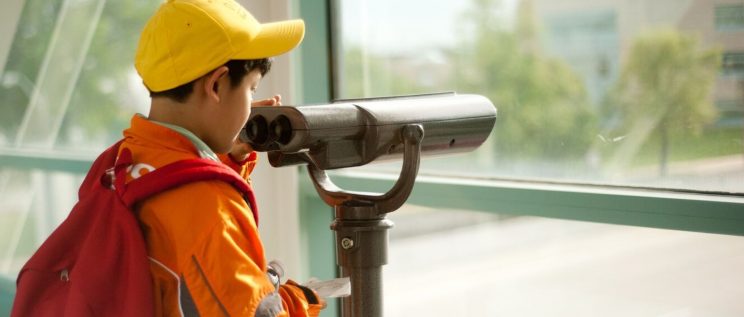
Accessibility
GROW is accessible to visitors with disabilities, as well as visitors with strollers, scooters, and walkers. Elevators and ramps serve all public areas.
Membership does more.
As a nonprofit, the Saint Louis Science Center relies on memberships, donations and ticket sales to support free galleries like GROW, our education programs, community outreach and daily operation.
